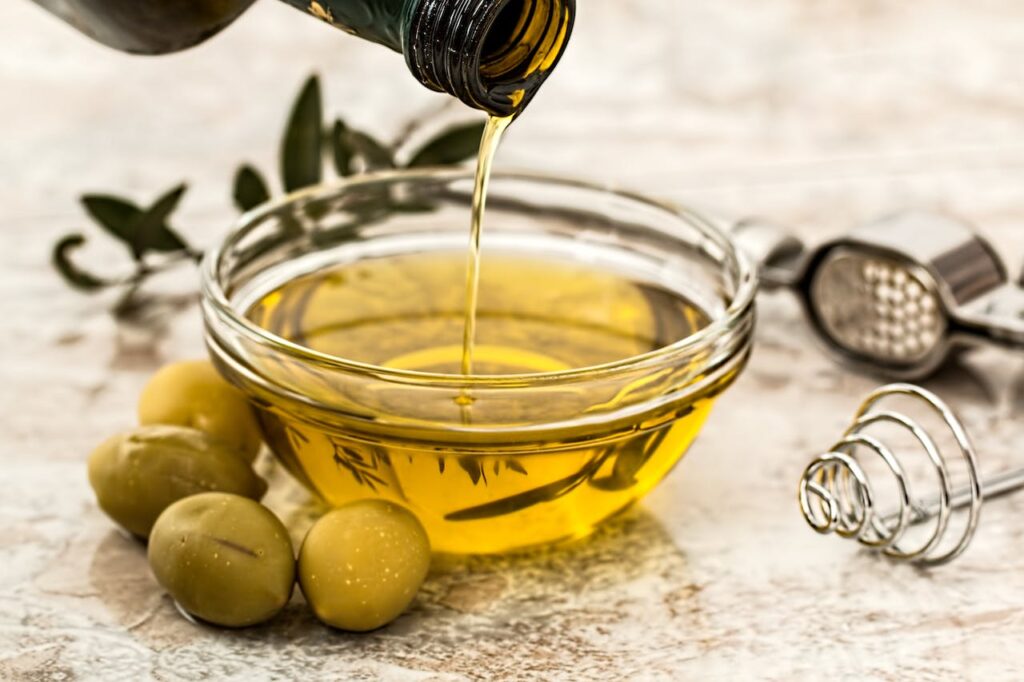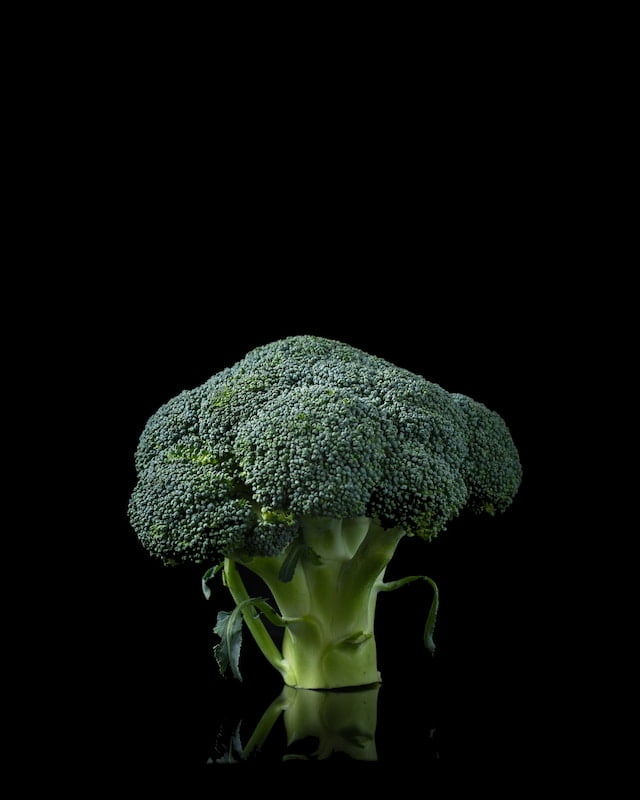There are benefits and drawbacks to inflammation.
On one level, it aids in your body’s defence against harm and illness. However, prolonged inflammation might result in illness.
This risk can be further increased by poor exercise levels, stress, and meals high in inflammation. Eating foods that can help decrease inflammation is therefore highly recommended.
Foods high in antioxidants, such as fruits, vegetables, and spices, may help lessen inflammation.
The following are the top anti-inflammatory foods:
1. Extra virgin Olive oil

Out of all the fats you consume, extra virgin olive oil is one of the healthiest.
It is a mainstay of the Mediterranean diet, which offers several health advantages and is high in monounsaturated fats.
Extra virgin olive oil may lower the risk of obesity, brain cancer, heart disease, and other major health disorders, according to studies.
Studies indicate that consuming extra virgin olive oil as a supplement and adhering to a Mediterranean diet can considerably lower inflammatory markers.
Ibuprofen and other anti-inflammatory medications have been compared to the effects of oleocanthal, an antioxidant present in olive oil.
Remember that extra virgin olive oil reduces inflammation more effectively than processed olive oils.
2. Green Tea
.
You’ve likely heard that matcha green tea, or green tea in general, is among the healthiest drinks.
Consuming green tea has been linked in studies to a lower risk of obesity, cancer, Alzheimer’s disease, heart disease, and other illnesses
Many of its benefits are due to its anti-inflammatory and antioxidant properties, especially those of a substance called epigallocatechin-3-gallate.
By lowering the synthesis of pro-inflammatory cytokines and preventing harm to your cells’ fatty acid composition, EGCG suppresses inflammation.
3. Grapes
The anthocyanins found in grapes have anti-inflammatory properties.
Furthermore, they could lower the chance of developing several illnesses, such as diabetes, obesity, arthritis, Alzheimer’s, and eye problems.
Another powerful antioxidant well-known for its numerous health advantages, resveratrol, may also be found in abundance in grapes.
Research indicates that resveratrol helps guard against inflammation in the heart.
Although taking a resveratrol supplement is not the same as eating grapes, a three-month study involving sixty people with heart failure found that taking two 50-mg resveratrol capsules daily reduced the levels of inflammatory gene markers like interleukin 6 (IL-6).
An earlier study from 2012 discovered that regular use of grape extract raised levels of adiponectin in adults. A higher risk of cancer and weight gain are linked to low levels of this hormone.
4. Peppers
Bell and chilli peppers are excellent sources of antioxidants and vitamin C, and they have strong anti-inflammatory properties.
Additionally, bell peppers include the antioxidant quercetin, which may lessen inflammation linked to long-term conditions like diabetes.
Ferulic acid and sinapic acid, which are found in chilli peppers, may lessen inflammation.
5. Broccoli

Eating cruciferous vegetables frequently has been linked to a lower risk of cancer and heart disease, according to research.
The antioxidant sulforaphane, which is abundant in broccoli, reduces inflammation by lowering levels of nuclear factor kappa B and cytokines, two chemicals that cause inflammation in the body.
In a reputable study including 51 obese people, eating avocado for 12 weeks resulted in lower levels of the inflammatory markers CRP and interleukin-1 beta.
6. Berries
Berries are little fruits that are rich in nutrients, vitamins, and fibre.
Anthocyanins are antioxidants found in berries. These substances have anti-inflammatory properties that might lower your risk of illness.
According to a 2018 assessment of the literature, berries contain phytochemicals that may help prevent or slow the onset and spread of cancer.
Your body naturally produces NK cells, which help keep your immune system functioning properly.
In another study, individuals who were overweight and consumed strawberries showed lower levels of certain inflammatory markers linked to heart disease than those who did not.
7. Mushrooms
There are hundreds of kinds of mushrooms around the globe, but only a small number are edible and farmed for profit.
These consist of shiitake, portobello, and truffle mushrooms.
In addition to being high in copper, selenium, and all the B vitamins, mushrooms are incredibly low in calories.
Additionally, they include phenols and other antioxidants that protect against inflammation.
8. Turmeric

A warming, earthy spice, turmeric is frequently used in curries and other Indian cuisines.
Because it includes curcumin, a potent anti-inflammatory agent, it has drawn a lot of interest.
Studies have demonstrated the anti-inflammatory properties of turmeric for diabetes, arthritis, and other illnesses.
In one study, individuals with metabolic syndrome took daily doses of one gramme of curcumin along with piperine from black pepper. The inflammatory marker CRP significantly decreased among them.
Getting enough curcumin from turmeric alone could make it difficult to achieve a noticeable difference. It can be far more beneficial to take pills that contain isolated curcumin.
Piperine is a common ingredient in curcumin supplements, and it can increase the absorption of curcumin by 2,000%.
Further investigation is required to comprehend the impact of turmeric dose on inflammatory indicators.
Conclusion
Limiting the number of items that cause inflammation in your diet in addition to including enough nutrient-dense anti-inflammatory meals will help your general health.
For instance, consuming more frozen snack foods, processed meat products, and other fast food items may raise blood levels of inflammatory indicators like CRP.
Foods like refined carbohydrates and drinks with added sugar may further exacerbate inflammation.
Just make an effort to eat a diet rich in whole foods, such as an abundance of fruits and vegetables, and well-balanced. It is advisable to limit your diet to less processed foods.
For more health-related content, check our healthy and fitness section here.
